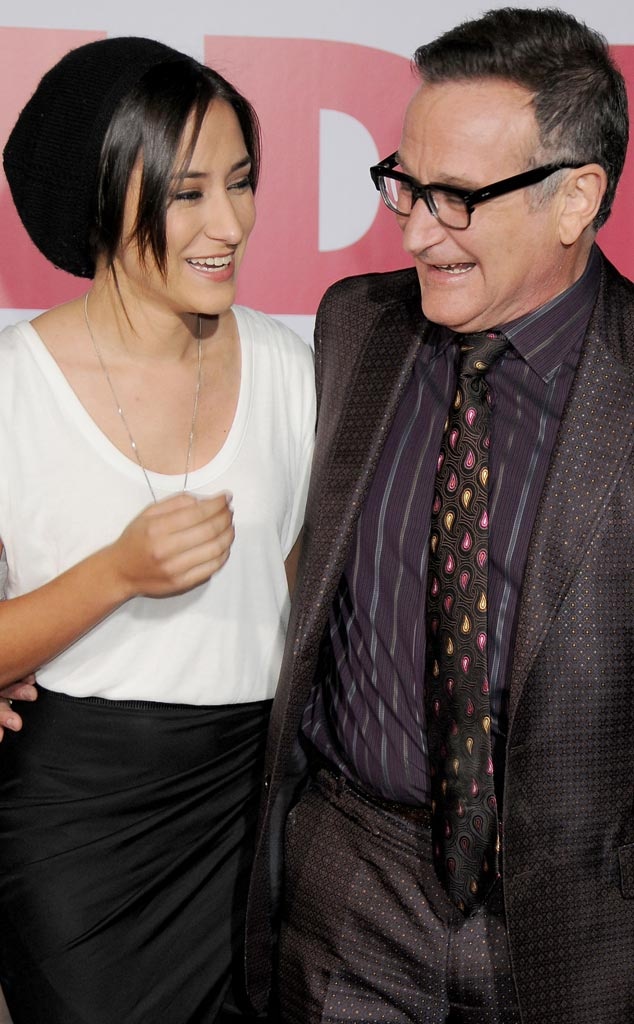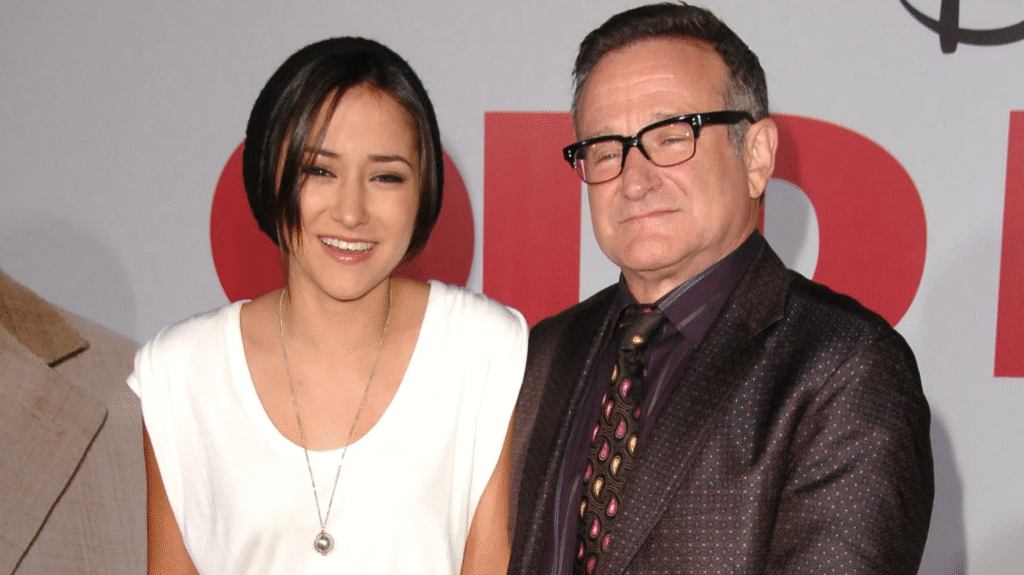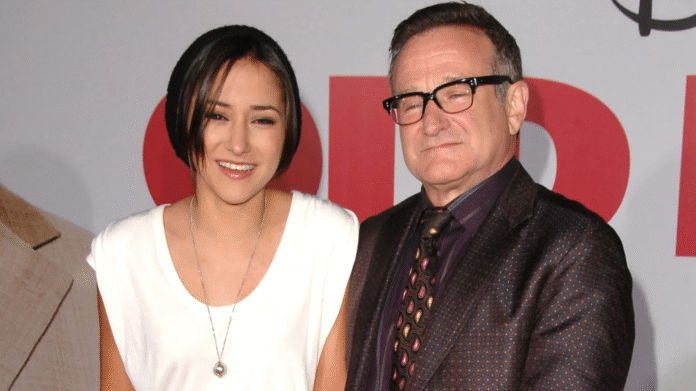Robin Williams AI Videos: The late comedian Robin Williams remains one of Hollywood’s most beloved figures, remembered for classics like Mrs. Doubtfire, Good Will Hunting, and Dead Poets Society. Yet, nearly a decade after his passing, his only daughter Zelda Williams has taken a strong public stance against the growing trend of Robin Williams AI videos.
On October 6, Zelda shared a heartfelt plea to fans, asking them to stop sending her artificially generated videos and images of her father. For Zelda, this isn’t about admiration, it’s about respect for his memory. Her words shed light on the darker side of artificial intelligence in entertainment and why such “tributes” can cause more harm than good.

Zelda Williams Rejects AI Tributes
In a now-expired Instagram Story, Zelda directly addressed fans:
“Please, just stop sending me AI videos of Dad. Stop believing I want to see it or that I’ll understand, I don’t and I won’t.”
Her frustration was clear. While many fans believe AI-generated media serves as a way to keep Robin Williams’ spirit alive, Zelda insists it only disrupts her grieving process. For her, these Robin Williams AI videos do not honor her father’s legacy but instead distort it.
Why Robin Williams Wouldn’t Approve
Zelda went a step further by explaining that her father himself would not have wanted to be recreated digitally. She emphasized that Robin, who passed away in 2014 at the age of 63, valued authenticity and creativity, qualities that AI often fails to capture.
She wrote:
“If you’ve got any decency, just stop doing this to him and to me, to everyone even, full stop. It’s dumb, it’s a waste of time and energy, and believe me, it’s NOT what he’d want.”
Her words make it clear: Robin Williams AI videos do not align with the comedian’s values.
Zelda’s Harsh Criticism of AI Content
Zelda didn’t hold back when describing how she views the practice of recreating actors through AI. To her, it isn’t art, it’s exploitation.
She compared AI videos to “disgusting, over-processed hotdogs,” saying they recycle and regurgitate the past without true creativity. For her, it’s not just about her father—it’s about the damage AI does to the arts overall.
Her analogy went viral, as she added:
“You’re not making art, you’re making… something gross and shoving it down someone else’s throat hoping they’ll give you a thumbs up.”
This strong condemnation highlights why conversations around Robin Williams AI videos are more than just fandom debates—they’re part of a larger ethical discussion.
Zelda’s Long-Standing Opposition to AI in Hollywood
This isn’t the first time Zelda Williams has spoken out. During the SAG-AFTRA strike in October 2023, she strongly criticized Hollywood’s potential use of AI to replicate deceased actors.
She explained how some companies aim to train AI models on actors who can no longer give consent, including her father.
“I’ve witnessed for YEARS how many people want to train these models to create/recreate actors who cannot consent, like Dad. This isn’t theoretical, it is very, very real.”
Her remarks underscore why the rise of Robin Williams AI videos is so troubling, it raises deep concerns about consent, creativity, and exploitation in the entertainment industry.
The Grieving Process and Fan Tributes
For Zelda, the issue goes beyond technology. The sheer volume of tributes from fans has complicated her grief journey. In a 2020 Instagram Story, she admitted that while she is touched by people’s love for her father, it can sometimes feel overwhelming:
“Some days it can feel a bit like being seen as a roadside memorial, a place, not a person, where people drive past and leave their sentiments to then go about their days comforted their love for him was witnessed.”
This insight helps explain why Robin Williams AI videos cut even deeper. They don’t just remind Zelda of her loss, they distort her father’s memory in ways she cannot control.
Why Fans Should Think Twice Before Sharing AI Content
Fans who create or share Robin Williams AI videos may believe they are honoring him. But Zelda’s words reveal the unintended pain it causes. By reducing her father’s artistry to algorithms and simulations, such videos erase the authenticity that made him legendary.
It raises an important question: Can technology truly capture the spirit of a performer? Or does it simply mimic the surface while losing the soul? For Zelda, the answer is painfully clear.

The Broader AI Debate in Entertainment
The controversy over Robin Williams AI videos is part of a larger cultural conversation. From voice cloning to digital replicas of actors, AI technology is changing the future of film and music.
Some argue it keeps legends alive. Others, like Zelda, argue it violates boundaries of respect and consent. Even organizations like SAG-AFTRA have made AI a core issue in their negotiations, citing risks of exploitation and misuse.
At the same time, artists, ethicists, and audiences are increasingly questioning whether AI-generated performances should be considered legitimate art at all.
Conclusion: Respect Over Replication
The Robin Williams AI videos debate highlights a crucial point: grief and memory deserve respect, not digital manipulation. For Zelda Williams, honoring her father means remembering him as he truly was, not as an artificial reconstruction.
Her words serve as a reminder to fans and creators alike: just because technology allows us to do something, doesn’t mean we should. True respect for Robin Williams lies not in AI recreations but in cherishing his authentic performances, interviews, and the legacy he left behind.
As the world continues grappling with the role of AI in entertainment, Zelda’s voice remains a powerful plea for humanity in a digital age.

